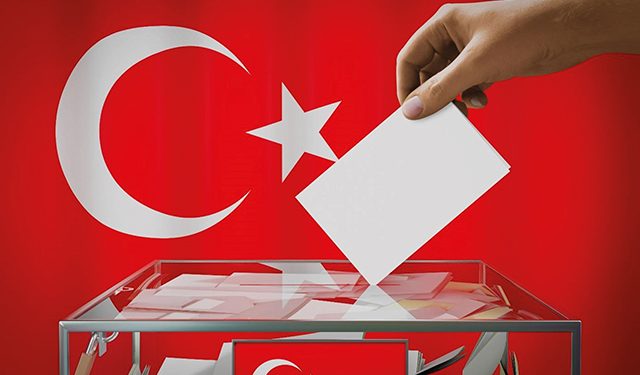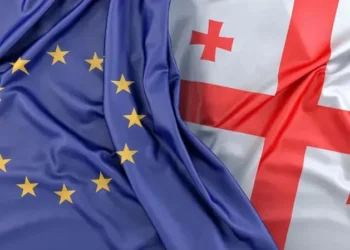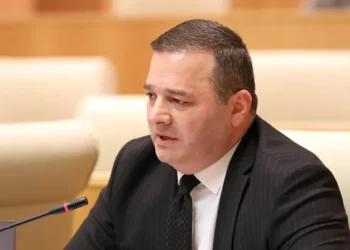First published by GFSIS
Presidential and parliamentary elections are planned in the Republic of Turkey on May 14, 2023. Why are these elections important and what can we expect from them?
2023 marks the 100th anniversary of the founding of the Republic of Turkey, and the upcoming elections are expected by many to feature as a sort of referendum; a turning point that will determine what the future of the country of 85 million people will be in the short term perspective, as well as in the long run.
Indeed, these elections may turn out to be the most important and dramatic in the history of the Republic of Turkey. Turkish citizens will have to choose not only between the current conservative, centralized government and a diverse, relatively decentralized opposition, but also decide what form of government Turkey will have. The opposition promises that if they win, the country will return to the parliamentary governance system, they will return millions of Syrians living in the country, and they will solve the economic challenges facing Turkey (they published a 244-page plan for this goal on January 30).
These elections will also decide whether the nearly 22-year rule and political course of President Recep Tayyip Erdogan and his Justice and Development Party will continue. It should be noted that during this time, the ruling party has won 13 elections and 3 referendums held in the country, among them, the 2017 referendum, thanks to which Turkey switched from a parliamentary to a presidential system of governance.
These elections coincide with a Turkey facing multiple economic challenges, and this factor may have a significant impact on the election results. Among the setbacks are high inflation, devaluation of the Turkish Lira, and increased unemployment. These problems traditionally harm the rating of the acting government in Turkey. If we look at the results of the last local elections in 2019, we can see that the victory of opposition representatives in the big cities (Istanbul, Ankara, Izmir, etc.) was mainly related to economic difficulties, although, in this case, the support of opposition candidates by pro-Kurdish forces was also an important factor.
However, the government is well aware of the importance of the economic situation in relation to the outcome of the elections. Erdogan has already begun serious preparations to alleviate the economic hardships of ordinary voters. He mobilized tens of billions of US dollars within the country and abroad to maintain the exchange rate of the Turkish Lira (for this purpose, the Central Bank of Turkey in the past year, allocated 108 billion US dollars) and, with various regulations, is trying to regulate the increase of prices, especially with regard sfood and rental prices. In January, it significantly increased the minimum wage – from 5,500 Lira (about 300 US dollars) to 8,500 Lira (about 450 US dollars).
These measures have had their positive effects, and Erdogan’s rating, and that of the ruling party, increased by several points, seeing them mainly taking the votes of undecided voters. However, no-one knows how long it will be possible to maintain the exchange rate with these methods, the devaluation of which is perceived by the majority of ordinary voters as an economic crisis. From this, we can say that whichever power wins in these elections, its main issue will be the country’s economy.
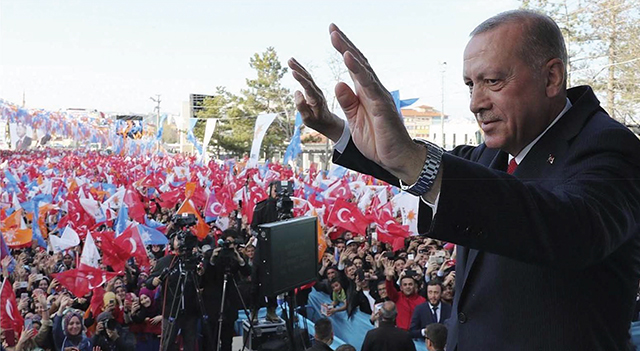
In the upcoming elections, the political forces are grouped as follows:
1. The ruling coalition, known as the People’s Alliance, includes, in addition to Erdogan’s conservative Justice and Development Party, the far-right Nationalist Movement Party. Together, they hold 335 mandates in the 600-member parliament;
2. A rather diverse opposition union known as the National Alliance (sometimes referred to as the “Table of Six” due to the number of parties included within it), which includes parties of six different orientations (left-center, Kemalist, right-center, and conservative). Together, they hold 174 seats in the Turkish Parliament;
3. The left-wing pro-Kurdish People’s Democratic Party, whose leader Selahattin Demirtas has been imprisoned since 2016, serving a sentence on charges of producing propaganda in favor of a terrorist organization. The legal process is ongoing against this political party itself on charges of separatist activities. Currently, the People’s Democratic Party in the Turkish Parliament holds 56 mandates.
Recent public opinion polls show that the ruling party is still the most popular, and will most likely take most of the votes. However, it is clear that it will not be able to form a majority on its own. Here, it will be of decisive importance to what extent its partner, the Nationalist Movement Party, will be able to overcome the 7% barrier required to enter Parliament (according to the polls, today the party is at the mentioned limit), and how many of its representatives will have mandates within the legislative body.
The complex, mixed (majoritarian-proportional) electoral system of Turkey allows, for example, in the case of receipt of 42% of the votes, the formation of a majority in the parliament. However, for this, it is necessary to win in those governorates where the population is relatively small. Such places are mainly provinces of conservative sentiment, where the ruling party is traditionally strong.
The official candidate for the presidential elections of the current ruling party is, of course, the current president Recep Tayyip Erdogan. The opposition has not yet nominated its own unified presidential candidate (and are expected to do so on February 14).
Among the possible candidates was Ekrem Imamoglu, the charismatic Mayor of Istanbul from the left-centrist Republican People’s Party, who in 2019 was able to mobilize the votes of a large number of citizens of both conservative, left-wing, and Kurdish origin in the country’s largest city, while defeating the official candidate of the ruling party.
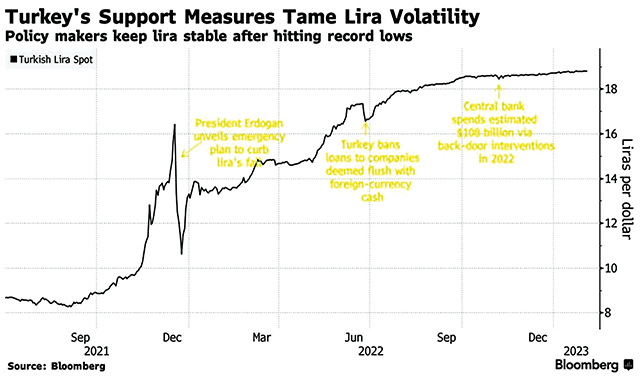
However, after Imamoglu was sentenced to prison and ceased his political activity, the opposition was left with a dilemma. Active internal debates and consultations are ongoing in the opposition on the selection of a common presidential candidate.
According to the results of the public opinion poll, at the moment Erdogan is still ahead and needs around 8-10% to be able to win in the first round. Otherwise, a second round will be scheduled with an interval of two weeks. If this happens, it will be decisive who will be supported by the pro-Kurdish “People’s Democratic Party”, which has distanced itself from the ruling party. Those votes are not guaranteed for the opposition candidate either, however. If the candidate is left-leaning, his or her chances of getting those votes increase, but if the unified candidate of the opposition is a right-wing nationalist, then it will be difficult to mobilize Kurdish votes.
Nor can it be ruled out that one competing force will win the presidential elections and another will win the parliamentary elections. In this case, a fierce confrontation will likely take place. Here, we should also take into account that after the transition to a new system of governance, this will be the first precedent of tension between different branches of government, and no-one can say how it will end.
Issues related to foreign policy are not the main topic of these elections, and when the majority of voters make their choice, foreign policy matters will be of less importance.
However, due to Turkey’s military-political and economic weight, the Turkish presidential and parliamentary elections have an international dimension. The opposition promises that in case of victory, the country’s main objective will be the acquisition of full membership in the European Union. Turkey currently has the status of a candidate member, although the process of accession negotiations was suspended for political reasons. President Erdogan favors a more balanced foreign policy, which we have seen throughout his rule.
The Turkish presidential and parliamentary elections, the country’s foreign and domestic policy, as well as the economic situation there, are also important for Georgia, as its largest trading partner for many years now has been the Republic of Turkey (as of 2022, the volume of bilateral trade increased again and amounted to 2.8 billion US dollars).
Considering all the above-mentioned factors, we can assume that the presidential and parliamentary elections in Turkey will be a tense but extremely interesting process, and certainly one to watch.
BLOG by Zurab Batiashvili for GFSIS

